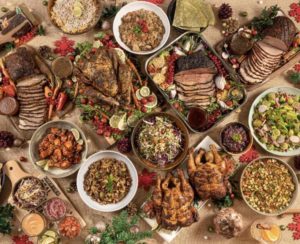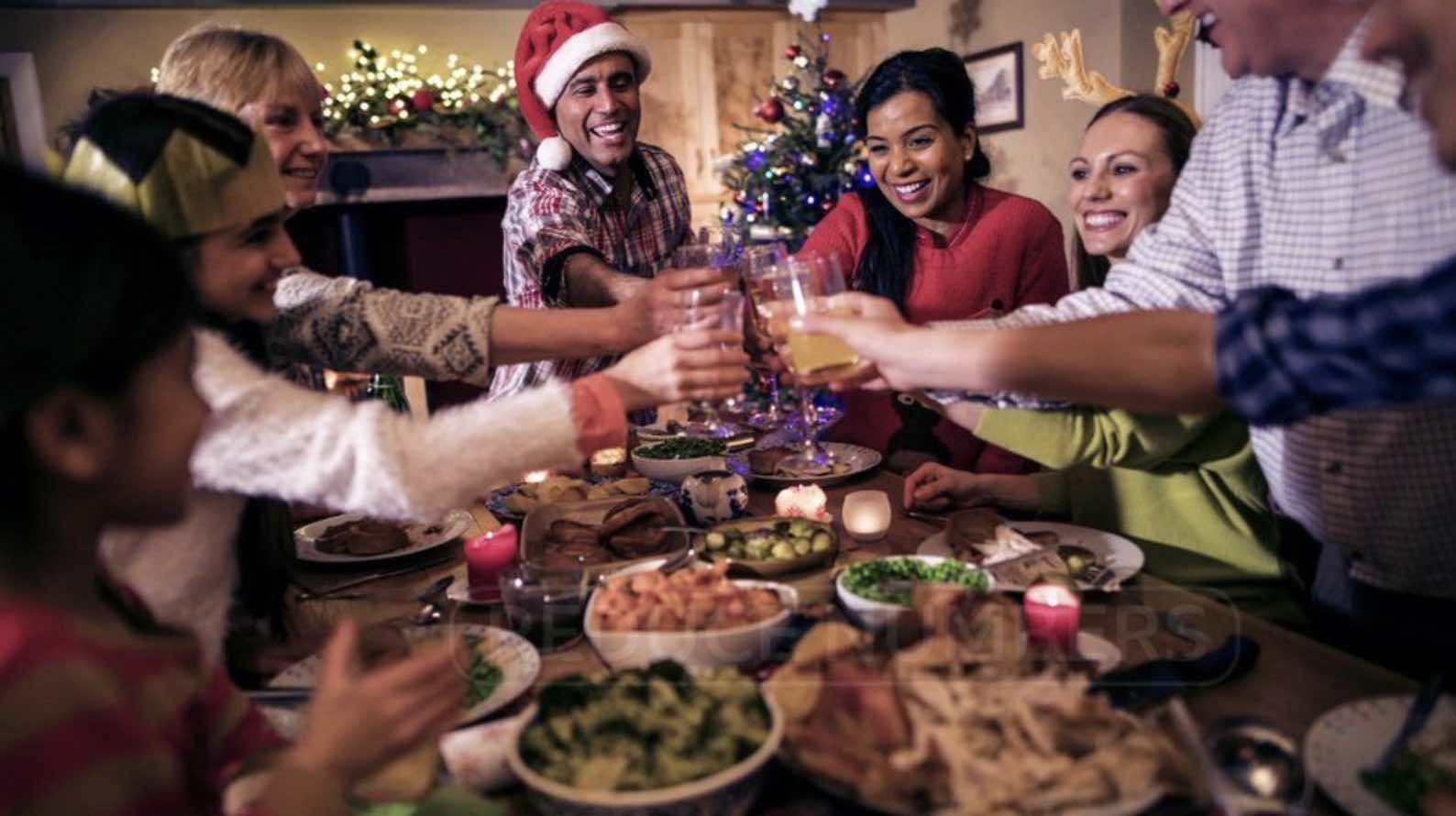Why do so many people refuse to change their holiday plans, even when such changes to the traditional holiday celebrations could save lives? Research from Harvard and Berkeley shows that major holidays like these are highly ritualised, and that disrupting rituals evokes moral outrage. Psychologically, it makes sense: rituals, more than any other behaviour, represent a group’s cherished values. When they are disrupted, it feels like those values are under attack, a threat that is met with defiance and even anger. Hence the surge in travel and willingness to attend in-person gatherings: rituals are just too important to be disrupted, even if it’s to reduce the numbers of COVID cases.
Rituals are different from other types of behaviour because they require two components: a prescribed set of rigid, repetitive behaviours that have to occur whenever there is a celebration (such as always eating turkey at Christmas, participating in a Seder on Passover, and decorating eggs with family on Easter), and a sense of meaning associated with those behaviours. In one of the studies, a sample of U.S. citizens was asked to rate the degree 15 different holidays (including Thanksgiving, Christmas and New Year’s Eve) meet these two properties of ritual: how rigid they are, and how much meaning the holiday carries.

The results showed that the more the holiday contained both of these features, the more participants were outraged when the holiday’s celebrations were altered. Moreover, the degree to which holidays included the rigid behaviours of ritual predicted outrage, above and beyond the meaning the holiday carries, indicating that it’s the altering of the physical rituals (and not just the degree of meaning) that triggers outrage.
Out of all holidays in the study, Thanksgiving, Christmas and New Year’s Eve, were rated the most ritualistic (in the case of New Year’s, this describes how uniform and rigid they are). This suggests that alterations to these holidays would be met with the greatest amount of resistance and a general refusal to follow restriction guidelines.
Take Thanksgiving, for example. It isn’t just about turkey and the fixings. It stands in people’s minds for all that is American—family values and national pride stemming all the way back to the anchoring of the Mayflower. As a result, mandated changes feel like a challenge to the very American values that the holiday has come to represent. The idea of not gathering for Thanksgiving, or altering the traditional rituals to which we’re accustomed, is shockingly irreverent to many millions of people.
In another study, Jewish participants were asked to imagine a series of changes to the traditional Passover Seder plate. Some of the alterations were major (changing many items on the plate) while other alterations were minor (changing only a few items on the plate). The researchers found that the major alterations produced comparable outrage as the minor alterations, indicating that even minor changes to rituals are not open to negotiation.
Simply put, our need for rituals is a matter of morals. While people feel comfortable applying cost-benefit analyses to things like changing the speed limit, moral values cannot be traded off for some other proposed benefit. For instance, in one of the studies, more than 90 percent of Jewish and Muslim participants reported that there was no amount of money that members of their religion would accept if it meant they could never practice the male circumcision ritual again, indicating individuals are insensitive to material gain when it comes to ritual practice.
Therefore, altering a ritual is simply not up for discussion. The more something is ritualistic—like Passover or Easter—the more it stands for the group’s most valued moral principles, the harder it is to alter the holiday celebrations without provoking deep outrage.
 Even though lives are at stake—the lives of the very people we can’t imagine celebrating rituals without—many people continue to go forward with holiday traditions as they would in any other year. Since holiday rituals are deeply cherished, no amount of logical rationalisation can change people’s minds.Urging people to stay home and change their traditions for the reason that it will “save lives” or will “limit the spread of COVID” doesn’t seem to be effective enough. Perhaps we need to appeal to emotions, not facts. Recognising the moral value that people place on these rituals is a start. Then it’s about framing new holiday celebrations in a way that makes it seem that the meaning of the ritual isn’t being altered. With effective persuasive messaging, hopefully in the next few months we can return to our time-honoured traditions and we can be thankful that we are able to share them with our still-living families and loved ones.
Even though lives are at stake—the lives of the very people we can’t imagine celebrating rituals without—many people continue to go forward with holiday traditions as they would in any other year. Since holiday rituals are deeply cherished, no amount of logical rationalisation can change people’s minds.Urging people to stay home and change their traditions for the reason that it will “save lives” or will “limit the spread of COVID” doesn’t seem to be effective enough. Perhaps we need to appeal to emotions, not facts. Recognising the moral value that people place on these rituals is a start. Then it’s about framing new holiday celebrations in a way that makes it seem that the meaning of the ritual isn’t being altered. With effective persuasive messaging, hopefully in the next few months we can return to our time-honoured traditions and we can be thankful that we are able to share them with our still-living families and loved ones.
Wherever you are in the world – stay safe, stay well and all the best for 2022!
REFERENCES:
* Stein DH, Schroeder J, Hobson NM, Gino F, Norton MI.
When alterations are violations: Moral outrage and punishment in response to (even minor) alterations to rituals.
J Pers Soc Psychol. 2021 Jan 25. doi: 10.1037/pspi0000352. PMID: 33492153.
* Ovul Sezer, Michael I. Norton, Francesca Gino, and Kathleen D. Vohs
Family Rituals Improve the Holidays
Journal of the Association for Consumer Research, Volume 1, Number 4, 2016.
